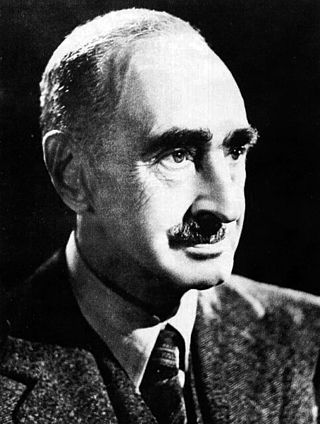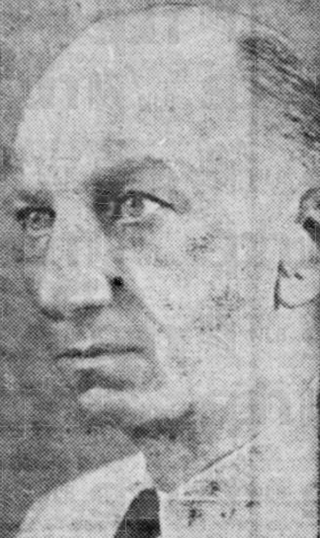Related Research Articles

The Federated Malay States was a federation of four protected states in the Malay Peninsula — Selangor, Perak, Negeri Sembilan and Pahang — established by the British government in 1895, which lasted until 1946, when they, together with two of the former Straits Settlements and the Unfederated Malay States, formed the Malayan Union. Two years later, the Union became the Federation of Malaya, which achieved independence in 1957, and finally Malaysia in 1963 with the inclusion of North Borneo, Sarawak and Singapore.

Tun Sir Tan Cheng Lock KBE, SMN, DPMJ, JP was a Malaysian Peranakan businessman and a key public figure who devoted his life to fighting for the rights and the social welfare of the Chinese community in Malaya. Tan was also the founder and the first president of the Malayan Chinese Association (MCA), which advocated his cause for the Malayan Chinese population.

Sir Thomas Shenton Whitelegge Thomas was a British colonial administrator most notable for his role as Governor of the Straits Settlements in Singapore.

Sir Andrew Caldecott was a British colonial administrator.
Sir Husein Hasanally Abdoolcader Mama was a Dawoodi Bohra by faith and a barrister and politician by profession in Malaya born in Surat, Bombay Presidency, British India. His eldest son Tan Sri Eusoffe Abdoolcader was also a prominent figure in Malaya and was a judge at the Supreme Court of Malaysia.

The Singapore Improvement Trust (SIT) is a former government organisation that was responsible for urban planning and urban renewal in Singapore. Formally established in 1927 under the Singapore Improvement Ordinance, it was modelled after similar organisations in India. The SIT initially carried out back lane improvement schemes and marking out unsanitary buildings for demolition, but began constructing public housing from 1935. After 1945, the SIT initially focused its efforts on the repair of its residential developments. It resumed constructing public housing in 1947 but was unable to keep up with demand. The SIT was also involved in the development of a "Master Plan", which set out Singapore's developmental direction, from 1952 to 1958. In the late 1950s, plans were set out to replace the SIT with two departments—housing and planning—culminating in two bills that were passed in 1959. With the establishment of the successor organisations by the government of Singapore, the Housing and Development Authority and the Planning Authority, in 1960, the SIT was dissolved.

The term "British Malaya" loosely describes a set of states on the Malay Peninsula and the island of Singapore that were brought under British hegemony or control between the late 18th and the mid-20th century. Unlike the term "British India", which excludes the Indian princely states, British Malaya is often used to refer to the Federated and the Unfederated Malay States, which were British protectorates with their own local rulers, as well as the Straits Settlements, which were under the sovereignty and direct rule of the British Crown, after a period of control by the East India Company.

Chung Thye PhinMSC, JP was a Chinese Malayan business magnate, planter, miner, bureaucrat, and philanthropist who served as the last Kapitan Cina of Perak and Malaya. He was reported to be the richest man in Penang.

The Straits Trading Company Limited is a Singapore-based corporation with operations in Singapore and Malaysia, as well as various localities in Asia and Australia.
Leong Sin Nam, alias Leong Sin, Leung Sin, Leong Sin Hee, was a Malaysian businessman. He migrated and settled in British Malaya in 1898. From humble beginnings, he worked hard to become a wealthy tin mine owner in Perak. He was a businessman, an active community leader and a philanthropist. He was a Chinese revolutionary with similar aspirations as Sun Yat-sen and a strong supporter of the Chinese war efforts during the Sino-Japanese war.
The Rubber Trade Association of Penang (槟城树胶公会), one of the oldest surviving rubber trade associations in the country, represents the interests of members of the rubber trade in the state. It is also known as the Penang Rubber Trade Association.
Wilfred Lawson Blythe was a British colonial administrator who served as the second Colonial Secretary of Singapore from 30 June 1950 to 30 July 1953.
Sir Colin Fraser was a mining engineer and executive in New Zealand and Australia.
Evelyn Charles Arthur Villiers JP UPM was a British planter and politician in colonial Ceylon.

Sir George Vance Allen was an Anglo-Irish British medical doctor, bacteriologist and academic administrator who served as the first Vice-Chancellor of the University of Malaya.

Sydney Bacon Palmer was the first chairman of the Malaysian Estates Staff Provident Fund. He also held various roles in the Selangor Turf Club and the Rotary Club of Taiping, and was an advocate for the propagation of the use of natural rubber. He was also a member of the State Council of Perak, a Federal Councillor, president of the United Planting Association of Malaya and an unofficial member of the Malayan Union Advisory Council. He served on various Malayan committees and boards.

Cheah Ghim Leng was a member of the Perak State Council, a Justice of the Peace and a member of the Federal Council.
Rajabali Jumabhoy was a businessman, politician and the chairman of Scotts Holdings in Singapore.

Tay Lian Teck was a prominent businessman, member of the Municipal Commission of Singapore, member of the Legislative Council of the Straits Settlements and president of the Singapore Chinese Football Association.
Sir John George Hay was a British industrialist. He was a leading figure in the global rubber industry from the 1930s to the 1960s.
References
- 1 2 3 4 5 "Sir John Bagnall". Times. 1 October 1954. p. 10.
- 1 2 3 "Knighthood For Mr. J. Bagnall". Morning Tribune. 23 June 1936. p. 1.
- ↑ "Corporate History - The Straits Trading Company Limited". www.straitstrading.com.sg. Retrieved 2024-04-02.
- ↑ "Straits Trading Company". The Straits Budget. 29 June 1923. p. 14.
- ↑ "Sir J. Bagnall Retiring". Malaya Tribune. 20 May 1947. p. 5.
- ↑ "Legislative Council". The Straits Echo. 20 December 1926. p. 1403.
- ↑ "Mr. Bagnall's Review". Malaya Tribune. 27 March 1930. p. 8.
- ↑ "Private Papers of Sir John Bagnall". Imperial War Museums. Retrieved 2024-04-02.
- ↑ "Recipients Of The Kings Jubilee Medal". Malaya Tribune. 24 May 1935. p. 12.